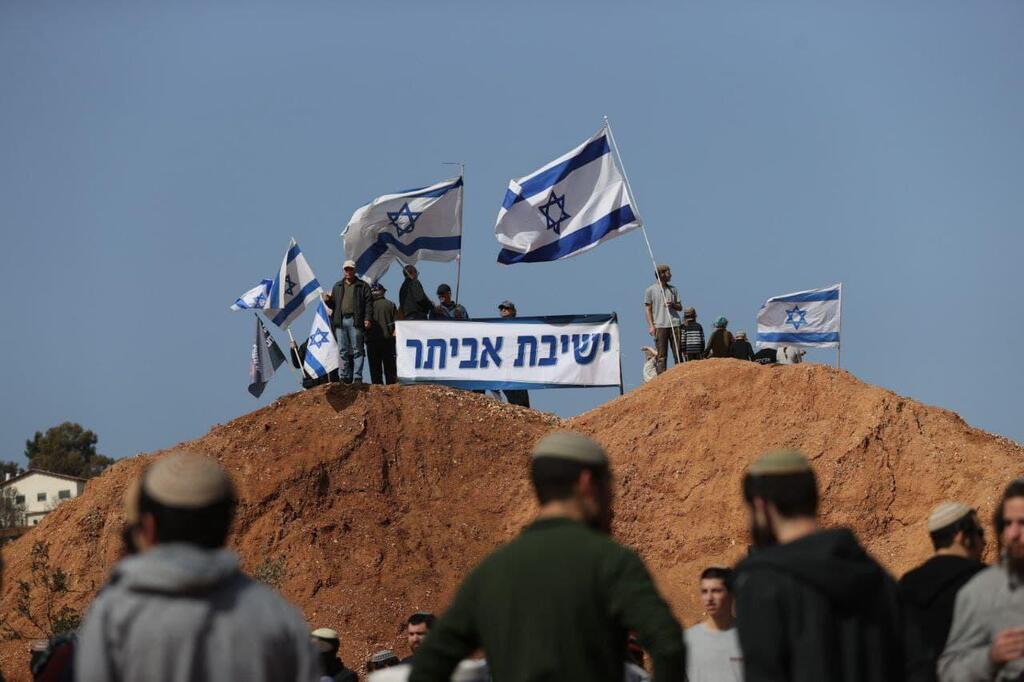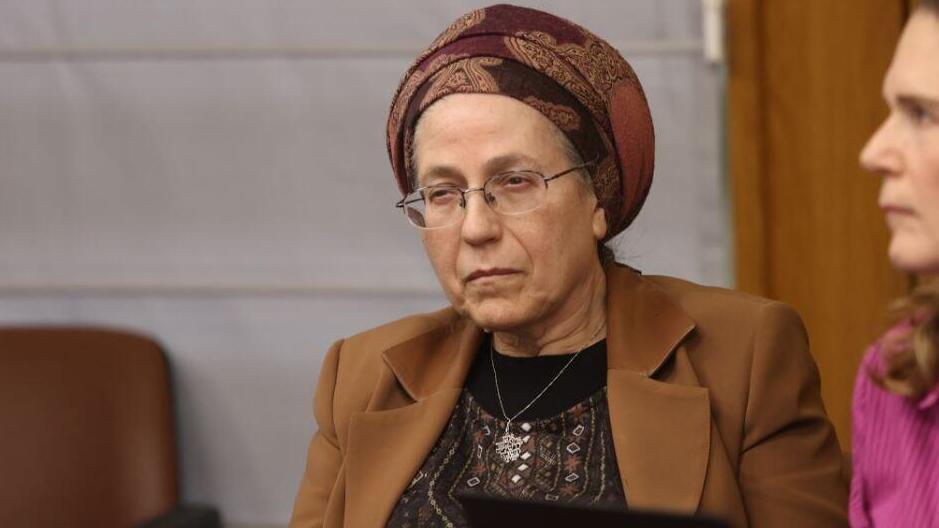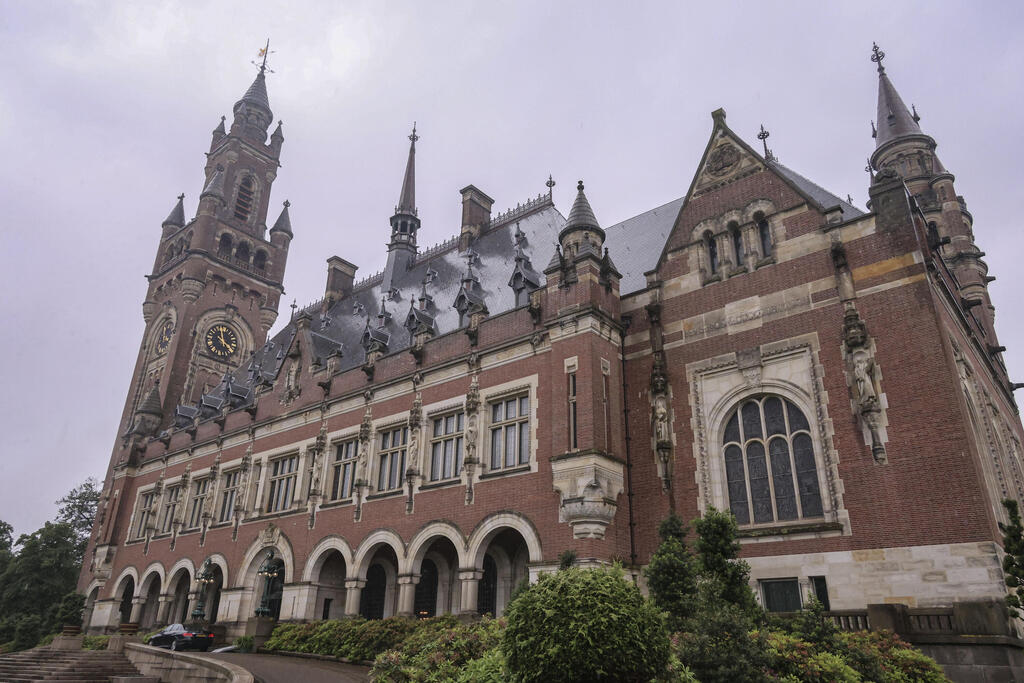Getting your Trinity Audio player ready...
The International Court of Justice (ICJ) in The Hague released an advisory opinion on Friday regarding the "legality of the Israeli occupation" in the West Bank and East Jerusalem in which it criticized Israel's land expropriation, settlement policies and settler violence. The report highlighted an acceleration in settlement construction, the authorization of numerous outposts and rampant settler violence.
The ICJ noted that the Defense Ministry has expropriated land and accelerated settlement construction, approving over 24,000 housing units in the past year, nearly 10,000 of which are in East Jerusalem. This includes strategic areas to prevent Palestinian territorial continuity.
Finance Minister Bezalel Smotrich, who also serves as a minister in the Defense Ministry, passed a resolution eliminating the need for Cabinet approval to convene the Higher Planning Committee, which approves these housing units. Additionally, illegal outposts have been retroactively legalized across the West Bank, predominantly benefiting the "young settlement" movement.
The ICJ also stated that the expansion of settlements in the West Bank and East Jerusalem is based on the expropriation of large areas of land. Recently, Smotrich and his ministry announced the final phase of declaring 5,900 acres in the Jordan Valley as state land.
The first phase, which legalized 860 acres, occurred under the previous government led by Naftali Bennett. Settlers faced difficulties in legalizing additional land, but four months ago, 2,100 more acres were approved. The third phase recently saw another almost 3,000 legalized. This significant move was previously halted several times due to international pressure, primarily from the U.S. and other countries. Settlers plan to develop these areas into industrial, commercial, employment zones and residential units.
Additionally, around 5,300 housing units are in the planning stages, with another 600 units ready for marketing across the West Bank. The objective is to approve as many housing units as possible in strategic areas, preventing Palestinian territorial continuity while creating Jewish settlement continuity.
The ICJ stated that "there is evidence that Israel is legalizing outposts in violation of its own laws." This follows a special conference held last month at Shaharit Farm in the northern West Bank, attended by dozens of settlement and outpost leaders. They were briefed on recent legalization moves by Smotrich and National Missions Minister Orit Strock.
Smotrich and Strock have been providing budgets and infrastructure approvals for around 63 illegal outposts undergoing legalization. These outposts were strategically placed to hinder the establishment of a Palestinian state. Essentially, this involves providing services to outposts that are in the process of being legalized but have not yet been formally approved.
The ICJ also criticized Israel's settlement policies, stating they have "enabled settler violence against Palestinians." According to the ICJ, "settler violence and Israel's failure to prevent it or prosecute offenders have created a hostile environment for Palestinians. Israel's systematic failure to curb or punish settler violence against Palestinians, coupled with its excessive use of force against Palestinians, contradicts its obligations."
The situation on the ground is complex, partly due to internal conflicts and disagreements between various enforcement bodies in the West Bank. Last month, a deep rift between the Shai District Police, responsible for law enforcement in the West Bank, and the IDF Central Command and the Shin Bet's so-called "Jewish Division" regarding the arrest of extreme Jewish youth came to light. There are particularly strained relations and a lack of trust between senior officials of the IDF Central Command and the Shin Bet's "Jewish Division" and the Shai District Police, who are jointly responsible for order and security beyond the Green Line.
Despite the Shin Bet's requests to arrest several Jewish youth suspected of nationalist crimes, and numerous incidents where Palestinians were harmed by Jews, suspects are not being arrested or brought to justice. As a result, many nationalist crime investigations have been transferred from the Shai District Police's Central Unit to the Lahav 433 unit to ensure thorough investigation.
The ICJ also claimed that "there is evidence that Israeli policy incentivizes the relocation of Israelis to the West Bank and the development of industrial zones by settlers." Indeed, the settlers' declared goal is to reach one million residents, with the current population exceeding half a million. To encourage population movement beyond the Green Line, they have been working for years on constructing safer bypass roads and transportation and housing solutions.
Furthermore, in the current government, Smotrich and Strock have promoted bypass roads and invested millions of shekels in a master transportation plan, including the opening of new routes and road expansions.
'Practical implications of Hague decision concerning'
Following the ICJ's advisory opinion, Israeli officials claimed that "the Hague arena has become political." They argued that "Security Council decisions on the conflict are based on direct negotiations. To understand the implications post-decision, it is crucial to note that this is a non-binding advisory opinion. The General Assembly consults on issues like UN budget allocation, significant UN operations funding or UN immunities, and receives basic legal advice."
However, they acknowledged that "the Palestinians might use the advisory opinion for rhetorical or informational purposes or try to bring it to the General Assembly. We've seen this before." They clarified that "the General Assembly cannot make operational decisions, and its power is limited. Many countries, like the U.S., UK and Germany, oppose the Palestinian move."
Yet, the advisory opinion could have practical implications for Israel. Officials emphasized: "These are concerns we need to address. One concern is international public opinion. Billions of people and commercial entities will hear the ICJ's findings and read about Israeli control over the territories. In the realms of BDS and boycotts, we may unfortunately have to confront these issues. Another equally troubling aspect is other international courts, such as the International Criminal Court.
"It's clear the Palestinians and their allies will try to leverage the advisory opinion, but our effort will be to ensure it has no more impact than the 2004 advisory opinion on the barrier," they added, referencing the security barrier between the West Bank and Israel Proper.
Regarding the possibility of the advisory opinion being presented to the UN Security Council, officials believe Algeria or other countries might attempt it. "Any country can bring the advisory opinion to the Security Council, and we expect it to be rejected by the council."
If the Security Council approves a resolution on the matter, Israel would be required to implement it or face sanctions. However, the U.S. argued that the court should avoid decisions that jeopardize negotiations for a two-state solution based on land-for-peace principles.
Israeli officials also noted that the advisory opinion "has the potential to bolster calls for sanctions. This is an issue we will address extensively, particularly on the diplomatic front. The key question is how the statements will be used and responded to."






